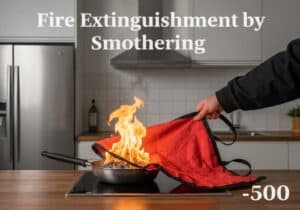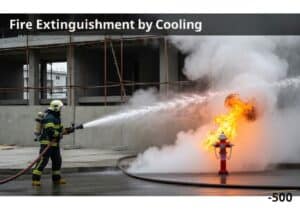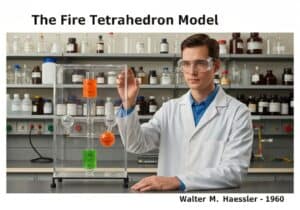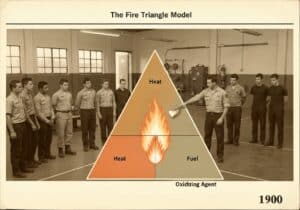The European standard EN 2, ‘Classification of fires’, harmonizes fire classes across member nations. It defines five classes: A (solids), B (liquids), C (gases), D (metals), and F (cooking oils). A key distinction from the US system is that Class C is specifically for flammable gases, and there is no dedicated class for electrical fires; instead, the burning material is classified.
European Fire Classification (EN 2)
- European Committee for Standardization (CEN)
The EN 2 standard was developed to create a single, coherent system for fire classification within the European Union, replacing a patchwork of different national Normen. This harmonization was crucial for the single market, ensuring that a fire extinguisher manufactured in one country would be understood and accepted in another.
The most significant departure from the American NFPA system is the treatment of electrical and gaseous fires. In EN 2, Class C is exclusively for fires involving flammable gases like propane, butane, or natural gas. This recognizes the unique hazard they present, as extinguishing the flame without stopping the gas leak can lead to the formation of an explosive gas cloud. The proper procedure is to isolate the gas supply first.
Fires involving electricity are not given their own class. The European rationale is that electricity is an ignition source, not a fuel. The fire itself involves the material that is burning, such as the plastic insulation on a wire (Class A). Therefore, an extinguisher is rated for its suitability for use on live electrical equipment (indicated on the label, often up to 1000V), but the fire is classified by its fuel. This approach is considered more technically precise, as once the power is cut, the fire’s fundamental nature is simply that of its burning material.
Class F for cooking fats is equivalent to the American Class K, addressing the specific challenges of high-temperature grease fires.
Typ
Unterbrechung
Verwendung
Vorläufersubstanzen
- pre-existing national fire classification standards in various european countries
- the influence of the american nfpa classification system
- the formation of the european single market, requiring harmonized standards
- advances in understanding the specific combustion properties of gases
Anwendungen
- standardization of fire extinguisher Herstellung and testing in the eu
- pan-european building codes and fire safety Vorschriften
- product labeling (ce marking) for fire safety equipment
- simplified trade of fire protection devices within the european single market
- multinational corporate safety training programs
Patente:
Mögliche Innovationsideen
!Professionals (100% free) Mitgliedschaft erforderlich
Sie müssen ein Professionals (100% free) Mitglied sein, um auf diesen Inhalt zugreifen zu können.
VERFÜGBAR FÜR NEUE HERAUSFORDERUNGEN
Maschinenbauingenieur, Projekt-, Verfahrenstechnik- oder F&E-Manager
Kurzfristig für eine neue Herausforderung verfügbar.
Kontaktieren Sie mich auf LinkedIn
Integration von Kunststoff-Metall-Elektronik, Design-to-Cost, GMP, Ergonomie, Geräte und Verbrauchsmaterialien in mittleren bis hohen Stückzahlen, Lean Manufacturing, regulierte Branchen, CE und FDA, CAD, Solidworks, Lean Sigma Black Belt, medizinische ISO 13485
Wir suchen einen neuen Sponsor
Ihr Unternehmen oder Ihre Institution beschäftigt sich mit Technik, Wissenschaft oder Forschung?
> Senden Sie uns eine Nachricht <
Erhalten Sie alle neuen Artikel
Kostenlos, kein Spam, E-Mail wird nicht verteilt oder weiterverkauft
oder Sie können eine kostenlose Vollmitgliedschaft erwerben, um auf alle eingeschränkten Inhalte zuzugreifen >Hier<
Verwandte Erfindungen, Innovationen und technische Prinzipien














